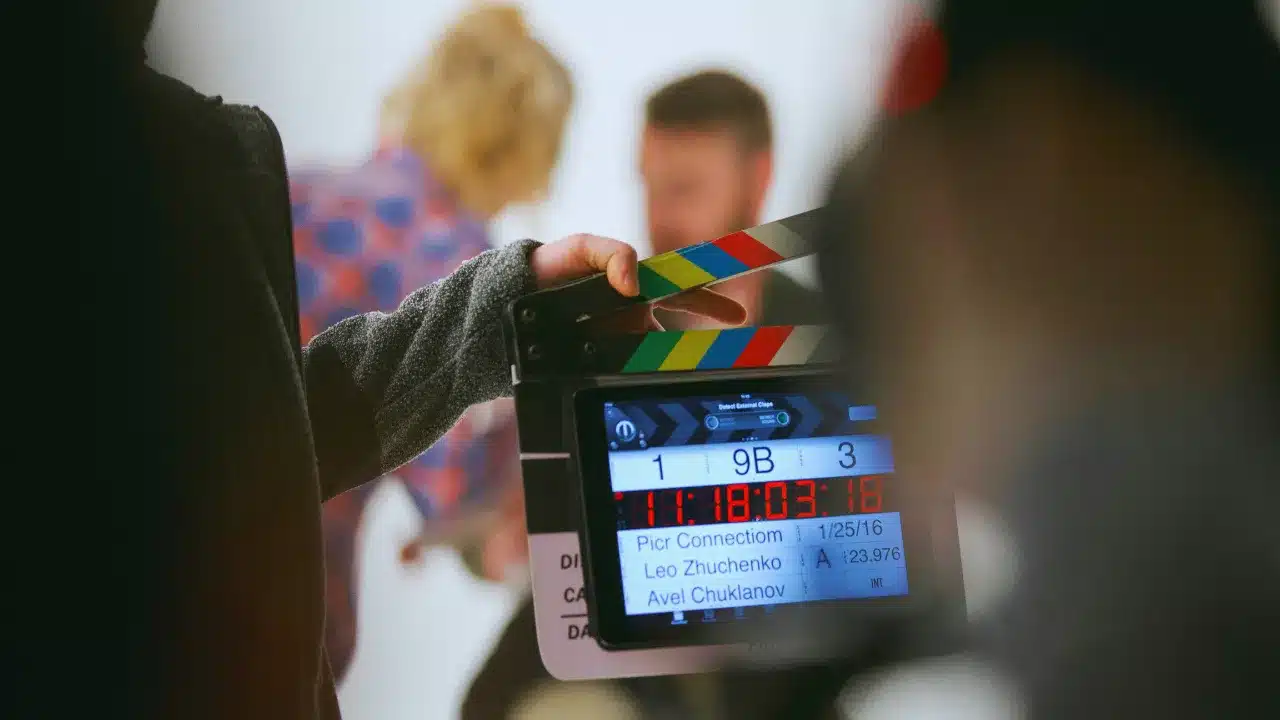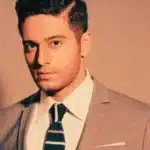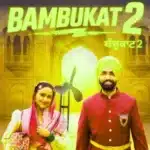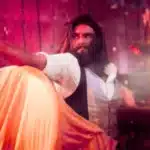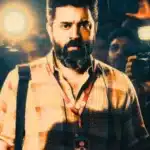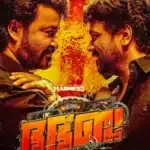Cinema has always been a powerful medium that mirrors human experiences, dreams, and imaginations. It allows us to escape reality while reflecting on the complexities of life through storytelling. However, certain movie roles transcend the confines of the screen and leave an enduring mark on both popular culture and the film industry. These iconic characters are not simply plot devices—they become the heartbeat of the films they appear in, resonating deeply with audiences for years, even decades, after their release. These roles have a lasting impact on the way we perceive genres, characters, and even the craft of acting itself.
They serve as benchmarks, often setting new standards for how performances should be executed and how stories are told. Characters that have shaped cinematic history are not just heroes or villains, but nuanced, multi-dimensional figures that reflect complex human traits. Whether they represent courage, vulnerability, ambition, or evil, these roles define entire genres and often influence the course of film for generations. In this article,
Read More: Movie Roles
The Power of a Defining Movie Role
In the vast world of film, the true measure of a movie’s success often extends beyond box office earnings or critical praise. The most powerful and lasting movie roles are those that resonate with audiences long after the movie has ended. These roles often transcend the film itself, becoming deeply associated with the actor’s identity and, in some cases, shaping the trajectory of an actor’s entire career. Whether it’s a charming antihero, a tragic hero, or a villain with complex motives, certain characters evolve into cultural icons, representing not just the role but an era or genre in cinema.
| Actor | Movie Role | Movie Title | Genre | Year of Release |
| Marlon Brando | Vito Corleone | The Godfather | Crime/Drama | 1972 |
| Harrison Ford | Han Solo | Star Wars | Sci-Fi/Adventure | 1977 |
| Audrey Hepburn | Holly Golightly | Breakfast at Tiffany’s | Romance/Comedy | 1961 |
| Robert Downey Jr. | Tony Stark (Iron Man) | Iron Man | Action/Superhero | 2008 |
| Al Pacino | Michael Corleone | The Godfather Part II | Crime/Drama | 1974 |
| Judy Garland | Dorothy Gale | The Wizard of Oz | Fantasy/Musical | 1939 |
| James Dean | Jim Stark | Rebel Without a Cause | Drama | 1955 |
| Leonardo DiCaprio | Jack Dawson | Titanic | Romance/Drama | 1997 |
Vito Corleone – Marlon Brando in The Godfather
Marlon Brando’s portrayal of Vito Corleone in The Godfather (1972) is widely considered one of the most iconic performances in cinematic history. Brando’s remarkable transformation into the powerful head of the Corleone crime family left an indelible mark on film. His ability to balance the character’s ruthlessness with profound emotional depth created a multi-dimensional figure that audiences still remember. Through nuanced gestures, his distinct, gravelly voice, and an almost hypnotic on-screen presence, Brando breathed life into a character that defined the mafia genre.
What made Brando’s performance even more memorable was his depiction of Corleone’s vulnerability and familial devotion, especially to his children. As the patriarch of the Corleone family, Brando’s portrayal gave the character both a sense of power and a deep connection to love and loyalty. His performance became the heart of The Godfather and has since influenced generations of actors and filmmakers. Brando’s Vito Corleone remains an archetype of complexity and strength, showcasing how a truly great performance can elevate a film into a cultural milestone.
The Influence of Vito Corleone on Cinema
Brando’s performance revolutionized the gangster genre and set a new standard for character portrayal in Hollywood. His ability to blend tenderness with violence in the role of Corleone made the character more complex and multi-dimensional. Vito Corleone remains one of the most recognized and beloved characters in cinematic history. His role set the foundation for mafia-themed movies, and many films that followed drew inspiration from Brando’s interpretation. In The Godfather, Brando gave life to a character whose moral ambiguity and familial devotion resonated with viewers, influencing not only acting styles but also shaping the gangster genre itself.
Han Solo – Harrison Ford in Star Wars
When Star Wars first hit theaters in 1977, Harrison Ford’s portrayal of Han Solo cemented him as one of the most iconic actors of his generation. The character of Han Solo—a charming, roguish smuggler with a heart of gold—quickly became a symbol of modern adventure and heroism. Ford’s delivery of witty one-liners, coupled with his undeniable charisma, made Solo a fan favorite, offering a perfect balance of cynicism and loyalty. Han Solo’s quick thinking and daring spirit made him an integral part of the Star Wars universe, proving that a hero doesn’t always have to follow the traditional mold.
Ford’s ability to infuse Han Solo with vulnerability, humor, and courage elevated the character beyond a simple action role. The smuggler turned rebel hero resonated with audiences, showcasing a man who was more than just a rogue, but someone capable of great personal growth and sacrifice. Han Solo became emblematic of the Star Wars saga’s blend of adventure, mythology, and complex character development, making Ford’s portrayal a key pillar of the franchise’s lasting success.
Han Solo: The Ultimate Rogue
Han Solo’s character was a departure from the typical hero figure. He was not the noble warrior, nor the tortured soul with a dark past—he was a witty, selfish, and quick-thinking rogue who slowly transformed into one of the most beloved characters in cinematic history. Ford’s portrayal made Han Solo a symbol of rebellion, individuality, and charm. His on-screen chemistry with Princess Leia (Carrie Fisher) and Luke Skywalker (Mark Hamill) created one of the most iconic love triangles in film history. Even decades after the original trilogy, Han Solo continues to be a cultural icon, cementing his place in the Star Wars legacy.
The Evolution of Iconic Roles
| Decade | Defining Movie Roles | Movie Title | Actor |
| 1930s-1940s | Rick Blaine, Vito Corleone | Casablanca, The Godfather | Humphrey Bogart, Marlon Brando |
| 1950s | Jim Stark, Judy Garland’s Dorothy Gale | Rebel Without a Cause, The Wizard of Oz | James Dean, Judy Garland |
| 1960s-1970s | Han Solo, Tony Stark | Star Wars, Iron Man | Harrison Ford, Robert Downey Jr. |
| 1980s-Present | Tony Montana, Michael Corleone | Scarface, The Godfather | Al Pacino, Robert De Niro |
Judy Garland as Dorothy Gale in The Wizard of Oz
performances in film history. Dorothy is a young girl from Kansas whose house is swept away by a tornado, transporting her to the magical land of Oz. Garland’s portrayal of Dorothy exudes innocence, determination, and warmth, making her a timeless character. Her performance was enhanced by her stunning vocals, particularly in the classic song “Somewhere Over the Rainbow,” which became a signature moment in the film.
Garland’s portrayal of Dorothy made her a beloved figure in cinema, and the character became a symbol of hope and the search for belonging. The role also highlighted Garland’s versatility as both an actress and singer, unforgettably showcasing her range. The Wizard of Oz not only became a box office hit but also a cultural milestone, largely due to Garland’s unforgettable performance. Her portrayal of Dorothy continues to resonate with audiences, making it one of the most cherished roles in film history.
There’s No Place Like Home” was taught to the girl.
In The Wizard of Oz, Dorothy Gale’s journey to the magical land of Oz and her desire to return home to Kansas speaks to universal themes of self-discovery, belonging, and hope. Garland’s performance as the innocent, determined girl resonated with audiences of all ages and continues to inspire generations. Garland’s portrayal transcended the screen, as she embodied the courage, resilience, and kindness that viewers could relate to. One of the most recognizable lines in film history is still Dorothy’s well-known statement, “There’s no place like home.
Tony Stark (Iron Man) – Robert Downey Jr. in Iron Man
Robert Downey Jr.’s portrayal of Tony Stark in Iron Man (2008) revolutionized the superhero genre and helped launch the Marvel Cinematic Universe (MCU). As a genius billionaire inventor and playboy, Stark was a flawed, charismatic, and complex character, played with sharp wit and charm by Downey. His portrayal added a new layer to the superhero archetype, making Stark relatable through his flaws, vulnerability, and personal struggles.
Unlike the traditional stoic or brooding heroes, Downey’s Stark was quick-witted, humorous, and often self-assured, which brought a fresh energy to the character. His transformation from a self-centered arms dealer to a selfless hero was both believable and compelling. Downey’s chemistry with other MCU characters also played a key role in making Stark a central figure in the franchise. His performance became the blueprint for the modern superhero, with a perfect balance of humor, action, and emotional depth. Downey’s Tony Stark remains one of the most beloved and influential characters in film history.
Tony Stark: The Flawed Hero
Unlike the more traditional, perfect heroes of the past, Tony Stark was a flawed, often reckless individual who ultimately learned to rise above his shortcomings. Downey’s performance turned the character into more than just a superhero; Tony Stark became a fully realized individual whose journey captivated audiences worldwide. The success of Iron Man also marked the beginning of the Marvel Cinematic Universe (MCU), which would go on to dominate the box office for years to come. Stark’s character arc, culminating in his ultimate sacrifice in Avengers: Endgame (2019), added emotional depth to the superhero genre and solidified his place in cinematic history.
Michael Corleone – Al Pacino in The Godfather Part II
Al Pacino’s portrayal of Michael Corleone in The Godfather Part II (1974) marks one of the most profound character transformations in film history. In the first Godfather film, Michael is introduced as a reluctant outsider to the Corleone crime family, aiming to distance himself from its violent legacy. However, in the sequel, Michael fully embraces his role as the ruthless head of the family, with Pacino skillfully portraying his descent into moral ambiguity and power-hungry leadership.
Pacino’s performance captures the complexity of Michael’s character, from his initial sense of duty and family loyalty to his increasingly cold and calculating actions. His emotional distance from his wife, Kay, and his willingness to make brutal decisions, such as ordering the deaths of key figures, showcase the tragic loss of his humanity. Pacino’s understated yet intense performance adds layers of psychological depth to Michael, making his journey both heartbreaking and fascinating. As Michael Corleone, Pacino delivered a career-defining performance, cementing his place as one of cinema’s greatest actors and making Michael Corleone one of the most iconic characters in the film.
The Tragedy of Michael Corleone
Pacino’s portrayal of Michael Corleone is marked by his understated yet powerful performance. As Michael becomes more immersed in the mafia world, Pacino expertly conveys the inner turmoil and moral degradation that defines the character’s tragic arc. The emotional weight carried by Michael in The Godfather Part II resonated deeply with audiences, and Pacino’s performance remains one of his most lauded achievements. This film solidified The Godfather Part II as one of the greatest films ever made and further cemented Michael Corleone as one of cinema’s most compelling characters.
Conclusion
The movie roles discussed here are not just memorable for their performances, but because they symbolize the evolution of cinema itself. Each character—whether a gangster, a superhero, or a dreamer—has reshaped not only their respective genres but also how audiences engage with film. These roles have forged lasting emotional connections with viewers, offering both entertainment and profound resonance. As cinema continues to evolve, the impact of these iconic roles will remain integral to the industry’s history, inspiring future actors, filmmakers, and audiences.
These characters have transcended time and genre, truly defining the essence of cinema. Their legacy endures because they reflect universal truths and human emotions. As such, their influence will continue to echo through generations of storytellers. These iconic roles will always be remembered, ensuring that their timeless legacy remains a cornerstone of cinematic history.
FAQs
What makes a movie role truly iconic?
Movie roles become iconic when they leave a lasting impression on audiences and influence culture. It’s not just the performance itself but how the character shapes the narrative, impacts the genre, and remains relevant across generations.
Who is considered the greatest actor of all time for their defining role?
While there are many great actors, Marlon Brando is often cited for his defining role as Vito Corleone in The Godfather. His performance revolutionized acting and set a new standard for cinematic excellence.
Why is Tony Stark such an important character in modern cinema?
Tony Stark redefined the superhero genre with his flawed, complex personality. Played by Robert Downey Jr., he brought a level of depth and humor that helped make the MCU a cultural phenomenon.
What role is Al Pacino best known for?
Al Pacino is best known for his portrayal of Michael Corleone in The Godfather series. His transformation from an innocent man to a ruthless mafia boss is one of the most iconic character arcs in film.
How did Han Solo become an iconic character in the film?
Han Solo became iconic because of Harrison Ford’s portrayal of a charming, rebellious antihero who ultimately became a symbol of loyalty and bravery in the Star Wars saga. His character’s growth and witty personality made him a fan favorite.
